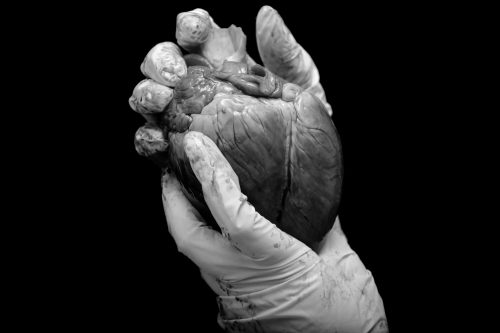There’s usually a serpentine line snaked out the door at the Department of Motor Vehicles—at least that’s always been my experience. Burnt into my memory are half-a-lifetime of Kafkaesque memories, nightmarish recollections of time spent waiting for assistance among the zombies and cobwebs at the DMV.
Surprisingly, when I visited the DMV recently in Missoula, Montana, there was no line at all. It was a different world: I was helped right away. I didn’t even have to take one of those flimsy paper numbers from the dispenser by the entrance; and to boot, the Missoula DMV employees were fast, fastidious, and friendly.
I sat down and filled out the necessary forms to obtain a new driver’s license. These forms seemed attenuated and easier to grasp than the bureaucratic stack I used to wrestle with back in Dayton, Ohio. It was too easy: name, address, DOB, etc., etc. And then my pen stopped as it hovered over the final question:
Do you want to be an organ donor?
I paused at this simple question. I’d never considered becoming an organ donor—not for lack of caring, but because of sheer ignorance of the statistics. Toward the end of last year, though, my friend Amanda emailed me a similar question: How familiar are you with the organ transplant waiting list?
Not at all, I responded.
She informed me there’re 117,000 people in the U.S. alone who are waiting for organ transplants right now: 74,000 of them are active, which means that 74,000 people are in critical condition and unable to work, to play with their kids, to eat normally, to walk up a flight of stairs, to pick up a carton of milk at the grocery—you name it. Only about 20,000 of these people will actually receive a transplant in the next year, and it’s not uncommon for a candidate to spend months in a hospital bed waiting for help. So consider this: one organ donor can save up to eighteen lives, and all he or she has to do is check a box on a driver’s license application.
For the first time in my life, I checked the “yes” box on the form, and thus I’m now an organ donor. Perhaps you’ll consider becoming one, too.
Ryan and I often write about the value of uncovering happiness in life. A large part of that happiness involves contribution. Giving is living, but I’m also comforted to know even when I die, I will still be able to contribute to others. After I take my last breath, my body will be dead, but because of my choice—my decision to check that affirmative box at the DMV—someone else will live.
Find more facts at the United Network for Organ Sharing.


